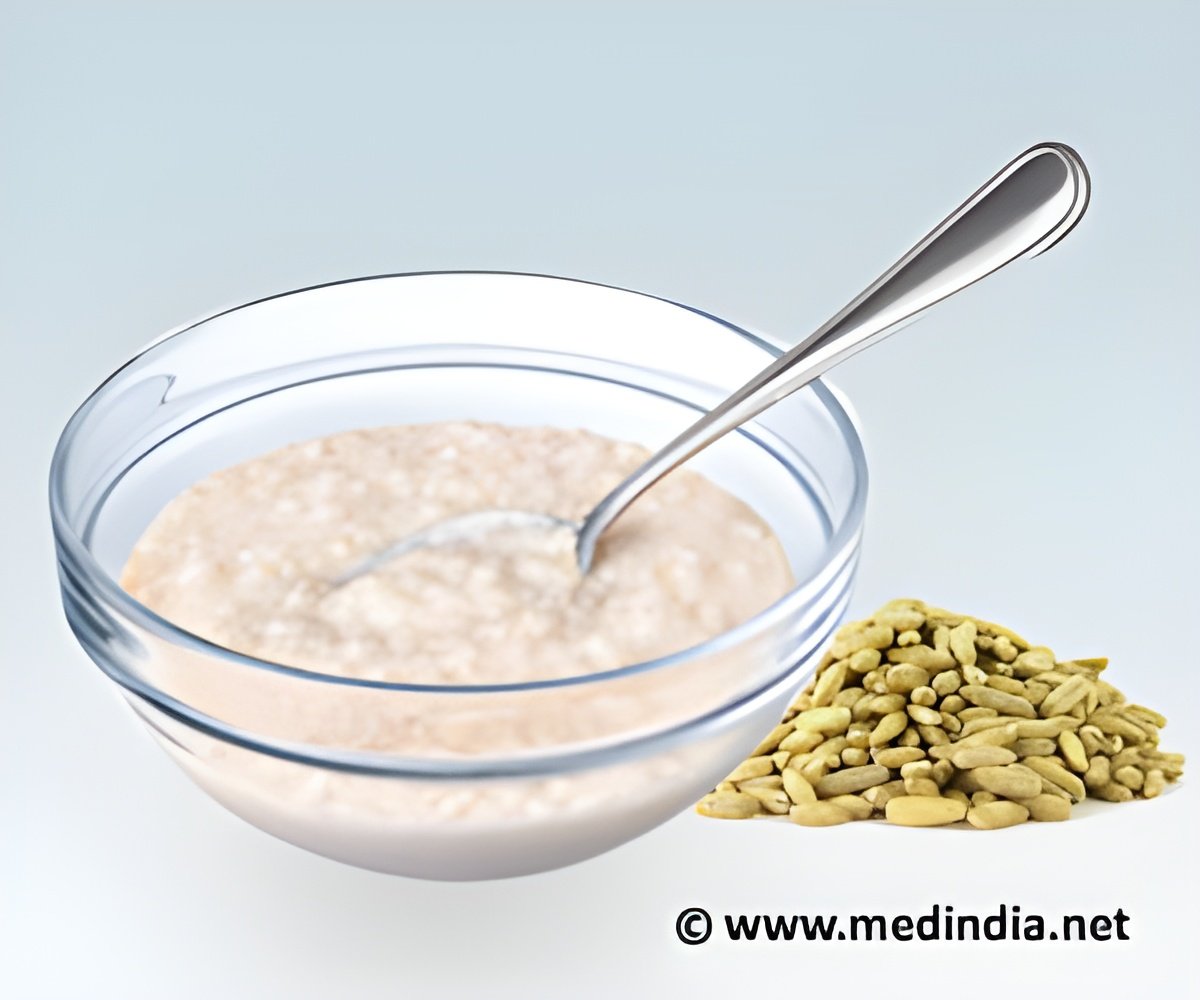The research also finds that people were less likely to experience an undesirable sugar low following the earlier peak in blood sugar than when they ate the smooth porridge.

Milling wheat grains to produce flour damages these cell walls, allowing the starch to be digested more quickly.
The study led by King's College London found that when participants ate wheat porridge made from coarser, larger particles, this gave rise to significantly lower blood sugar levels than when they consumed a "smooth" porridge made of finer wheat flour.
Both meals were made of the same ingredients and had the same nutrient contents but starch was digested more slowly in the coarse porridge.
Within two hours of eating, the blood sugar responses were 33 percent lower and insulin responses 43 percent lower when participants ate the coarser particles.
The researchers also found that participants were less likely to experience an undesirable "sugar low" following the earlier peak in blood sugar than when they ate the smooth porridge.
Advertisement
Understanding how starch is digested and metabolised is highly relevant to weight management as well as prevention of other related conditions such as Type 2 diabetes and heart disease.
Advertisement
The development of new milling techniques which maintain the microstructure of wheat might in the future give consumers a greater choice of "diabetic-friendly" foods or healthier versions of wheat-based products such as white bread, breakfast cereals or biscuits.
Source-IANS














